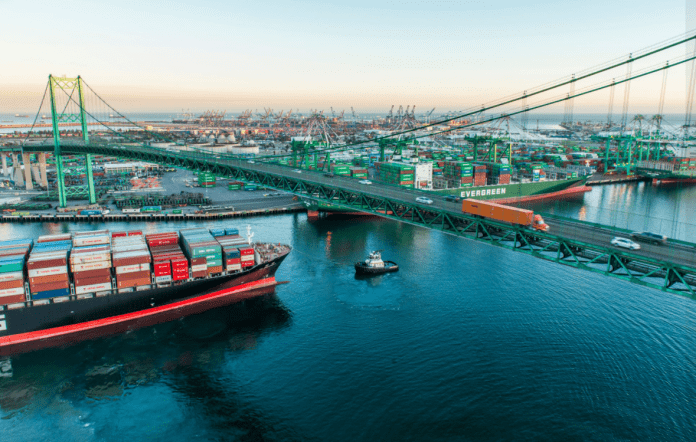The two ports in Los Angeles and Long Beach have decided to delay consideration of the “container dwell fee” directed at ocean carriers until 22 November.
The decision has been taken because there is improvement in the situation at the Californian box terminals. “We’re encouraged by the progress our supply chain partners have made in helping our terminals shed long-dwelling import containers,” said Port of Long Beach Executive Director Mario Cordero.
“Clearly, everyone is working together to speed the movement of cargo and reduce the backlog of ships off the coast as quickly as possible,” he added.
Since the fee was announced on 25 October, the San Pedro Bay ports have seen a decline of 26% combined in aging cargo on the docks. This encouraging momentum supports a delay in the implementation of the fee.
“There’s been significant improvement in clearing import containers from our docks in recent weeks,” confirmed Port of Los Angeles Executive Director Gene Seroka, who noted that the twin ports will continue to monitor the data until 22 November.
Under the temporary policy approved by the Harbor Commissions of both ports, ocean carriers will be charged for each import container that falls into one of two categories: In the case of containers scheduled to move by truck, ocean carriers will be charged for every container dwelling nine days or more. For containers moving by rail, ocean carriers will be charged if a container has dwelled for six days or more.
The ports will charge ocean carriers in these two categories US$100 per container, increasing in US$100 increments per container per day until the box leaves the terminal.
Before the pandemic-induced import surge began in mid-2020, on average, containers for local delivery remained on container terminals under four days, while containers destined for trains dwelled less than two days.
Any fees collected from dwelling cargo will be reinvested for programs designed to enhance efficiency, accelerate cargo velocity and address congestion impacts, according to the Californian ports.







